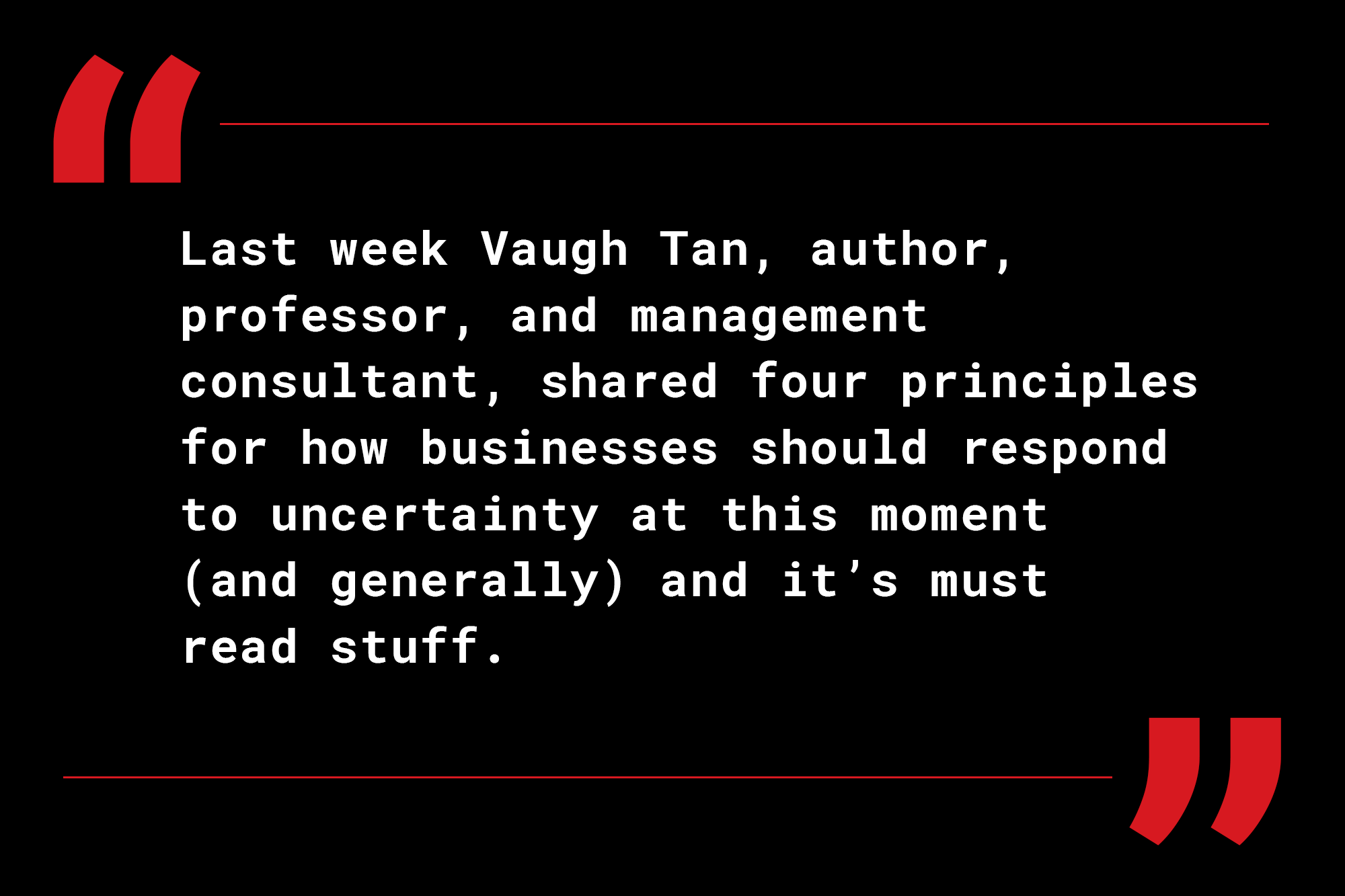Undeniable Uncertainty (Read This Now)
Vaugh Tan is an author, professor (University College London’s School of Management) and management consultant with a focus on Organizational Behavior. He writes (really well) about innovation, adaptability and uncertainty. He’s also a friend and has historically been one of my most trusted sources on things coffee, cocktails, restaurants and entrepreneurship. His weekly newsletter “the uncertainty mindset” predates coronavirus, but man is it prescient. And his writing since is the some of the most helpful, insightful and thoughtful content I’ve come across, anywhere. Last week he shared four principles for how businesses should respond to uncertainty at this moment (and generally) and it’s must read stuff:
- Take small but immediate actions that are designed to limit commitment while allowing exploration of the changing situation. Businesses shouldn’t wait to make big, irrevocable moves. Instead they should make lots of small, fast, low-cost, uncomfortable moves that let them experiment, explore, and learn about what is happening. For more on progressively overloading an organization to drive learning, see issue #10)
- Don’t wait for validated strategies to become available before taking action. Coronavirus poses a challenge for businesses which is literally unprecedented in nature and impact. Moreover, the situation itself is emergent, changing with every passing hour and day. For these reasons, no business will have access to a tried-and-tested playbook for responding to coronavirus—and so businesses shouldn’t wait for these to become available before acting.
- Don’t try to apply the risk mindset and optimize their actions. Trying to figure out the best possible set of actions to take implies knowing all the possible actions that can be taken. When knowledge is imperfect (as it is now), risk mindset stifles a business’s ability to develop unconventional responses (for more on reality mining and pragmatic imagination, see issue #3). Risk mindset is inappropriate in situations of uncertainty, and may be fatal (on which, see issue #21).
- Invest time and effort to immediately understand and clearly articulate not only what goals are prioritized but also what tradeoffs should be made to achieve those goals. When the situation is rapidly evolving and rapid distributed action is essential, clarity about goals and acceptable tradeoffs (for more on tradeoffs, see issue #9) becomes even more important for enabling employees to act effectively and autonomously. For more on Boris, a method for understanding and articulating goals and tradeoffs across teams and organizations, see issue #17).
Good, right?
Read the full post here: #23: Undeniable uncertainty
Sign up for his newsletter: The Uncertainty Mindset
Buy his book on Amazon when it comes out in June: The Uncertainty Mindset: Innovation Insights from the Frontiers of Food




